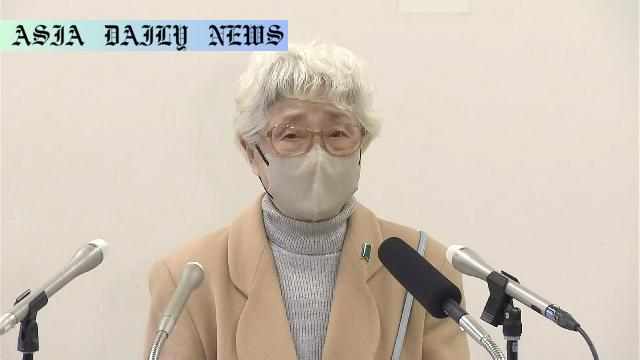Abduction – Yokota Sakie expresses deep sorrow as the last surviving parent of Japanese abductees, urging government action.
Key Point 1: Yokota Sakie becomes the last living parent of victims abducted by North Korea.
Key Point 2: She mourns the death of Arimoto Akihiro and reflects on the unresolved abduction issue.
Key Point 3: Urges Japanese government to address the long-standing crisis and ensure abductees return safely.

The Unresolved Tragedy of North Korean Abductions
In a poignant revelation, Yokota Sakie, aged 89, who has campaigned tirelessly for years for the return of her daughter Megumi, has now become the last surviving parent of Japanese citizens abducted by North Korea. This heartbreaking reality highlights the lingering pain of families who have waited decades for a resolution. Megumi, Yokota’s daughter, was abducted as a junior high school student in 1977—part of a series of kidnappings that left an indelible scar on Japan’s national psyche.
The Loss of Arimoto Akihiro
On Saturday, 96-year-old Arimoto Akihiro, another staunch advocate for the abductees, passed away without reuniting with his daughter, Keiko, who was taken in 1983. Yokota Sakie expressed her deep respect for Arimoto, recalling his dedication to the cause despite his advancing age and physical challenges. Even in a wheelchair, Akihiro traveled far and wide to raise awareness of the kidnappings and fight for justice. His death underscores the tragedy of the situation—the uncertainty and unresolved fates of abductees weigh heavily on their aged parents.
Government Inaction and Public Frustration
The Japanese government has officially recognized 17 citizens as having been abducted by North Korea in the 1970s and 1980s. While five individuals returned to Japan in 2002 through diplomatic efforts, the whereabouts and status of the remaining 12—including Megumi and Keiko—remain mired in mystery. Yokota expresses her deep frustration with the government, wondering why such a critical issue has not been resolved and urging decisive action to bring closure to the families. Her sorrow is compounded by the image of Arimoto passing away without achieving his life’s mission.
The Last Survivor’s Grief
Now the last surviving parent in this fight, Yokota Sakie reflects on the emotional toll of her unique position. She laments the passage of time, which has seen steadfast advocates for justice dwindle in number as the years roll by. The absence of progress weighs heavily on her heart, as she questions what lies ahead and whether the truth about her daughter’s fate will ever emerge. Her resilience and determination, however, remain unshaken, as she continues to rally for the safe return of all abductees.
A Call for Collective Action
Yokota’s passionate plea resonates strongly amidst a backdrop of apathy and political gridlock. She calls on her fellow Japanese citizens and the government to renew their commitment to resolving the abduction crisis, emphasizing that the abductees’ safe return should be a national priority. She also points to the importance of international collaboration to pressure North Korea into addressing these human rights violations. Her wish is simple yet profound—that all abductees return in good health and be celebrated by the Japanese people.
The Broader Implications
The struggle faced by Yokota Sakie and the families of abductees is a poignant reminder of the enduring impact of unresolved international disputes on individual lives. It also serves as a call for stronger accountability in international relations. The abductions stand as a stark violation of human rights, and the lack of resolution highlights significant gaps in geopolitical negotiations. Yokota’s story underscores the need for both persistence and compassion to address such crises effectively.
As the last surviving voice of a generation of parents who have tirelessly championed this cause, Yokota Sakie’s message holds greater significance than ever. It is a testament to the enduring power of hope, even in the face of unimaginable grief and loss.
Commentary
The Emotional Weight of Being the Last Voice
Yokota Sakie’s story is a stark reminder of the human cost behind geopolitical events. Her position as the last surviving parent in the fight for justice for Japanese abductees casts a spotlight on the emotional burden carried by affected families. Losing fellow advocate Arimoto Akihiro only deepens the solitude of her journey. This isn’t just an individual tragedy; it’s a national wound that remains unhealed.
A National Issue Needing Urgency
While Yokota’s resilience is admirable, her pleas should remind us that decisive governmental action is long overdue. It is disheartening to realize that decades have passed without significant progress. The frustration she voices echoes the sentiment of countless other families who question the delay in addressing this critical issue.
The Power of Persistence and Hope
Yokota Sakie’s enduring hope, despite decades of heartbreak, is deeply moving. Her unwavering determination to see abductees return to their families exemplifies the strength of the human spirit. It also serves as a call to action for individuals and nations alike to recognize the gravity of this issue and work collectively toward a resolution.
As we reflect on Yokota’s words, they challenge us to not only acknowledge the ongoing struggles of these families but also to advocate for justice and accountability. Yokota’s voice must not be the last—it should inspire a chorus demanding the swift resolution of this unresolved tragedy.


